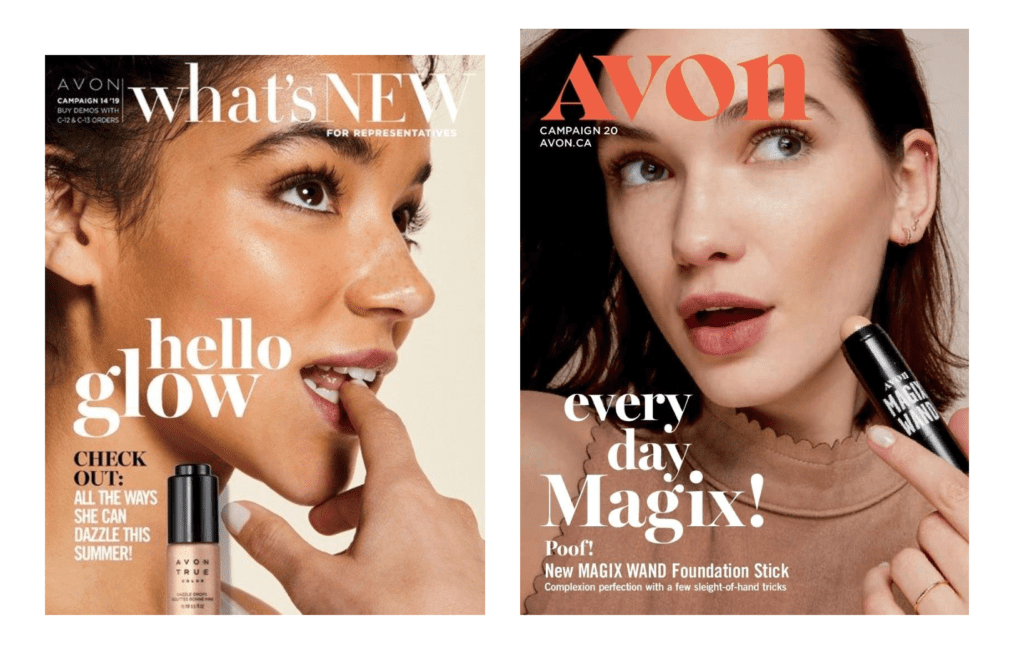Avon says that it has a “long history of empowering women around the globe,” giving them “the opportunity to be CEOs of their own businesses and control their economic destinies” some 34 years before they had the right to vote in the U.S., 95 years before the first woman was appointed to the U.S. Supreme Court, 77 years before a woman traveled into space, and 76 years before the first female took the reins of a Fortune 500 company. In other words, Avon says that it “has been empowering women for 130 years.”
Look behind Avon’s self-professed “passionate commitment” to empowering women, its “women-centric approach that helps to ‘break traditional barriers,’” its mission to provide women with “opportunities for advancement,” and of course, its innovative multi-level marketing model, one that – with the help of a workforce that is made up of more than 60 percent women – brought in a whopping $5.5 billion in revenue last year, and you will see something very different: a company that is embroiled in an ugly legal battle at the center of which is … women.
In the late summer of 2018, while London-headquartered Avon was busy preparing to launch new Vitamin C-packed serums and exfoliating face masks, and liquid eyeshadow sticks in shimmery jewel tones, it was also readying to be hit with a strongly-worded discrimination lawsuit. While Avon was churning out tinted moisturizers and colored liglosses, two former Avon employees were working with legal counsel to take on the cosmetics company, one that they have accused of egregious and routine acts of discrimination.
According to Caroline Ruiz and Olivera Krstanoska, who were later joined in their lawsuit by fellow former Avon employee Maxine Rivas, while Avon has a “long history of empowering women around the globe,” in reality, it is a boys club that routinely discriminates against pregnant women and new mothers.
Shortly after it was hit with the striking complaint, Avon attempted to swiftly usher the legal matter away from the prying eyes of the media and the public, and into privately-handled arbitration. However, a New York federal judge has subsequently said no. In a decision issued early this week, Judge Vernon Broderick of the U.S. District Court for the Southern District of New York held that the case against Avon will stay in court, instead of being able to transfer the matter into private arbitration.
In an opinion and order dated September 22, Judge Broderick responded to Avon’s motion to compel arbitration and dismiss the Title VII of the Civil Rights Act (which prohibits discrimination on the basis of pregnancy or childbirth), and New York City and State Human Rights Law-based claims first set forth by Ruiz, Krstanoska and Rivas, with a mixed decision.
Refusing to send Ruiz’s claims to arbitration, and thereby, keeping the case in court, Judge Broderick pointed to an agreement that Ruiz – Avon’s former Global Head of North America Indirect Procurement – signed after her initial November 2017 employment contract and arbitration agreement. Because the subsequent agreement provides that employment disputes are to be decided in court, he held that Ruiz is “not obligated to submit her claims against Avon to arbitration.”
While the judge’s unwillingness to grant the motion to compel arbitration is certainly a loss for Avon, the cosmetics giant has handed a string of wins by way of the judge’s dismissal of a number of the plaintiffs’ causes of action. Most notably, Judge Broderick tossed out all of Maxine Rivas’ claims with prejudice, asserting that she cannot pursue New York State Human Rights Law claims against Avon due to statute of limitations constraints and her failure to establish that she was, in fact, an Avon employee.
Sunday’s opinion comes less than a year after Ruiz and Krstanoska first filed suit (and were subsequently joined by Rivas), asserting that while Avon prides itself for its “women-centric” model, in actuality, “the company ‘for women’ is a company run by men,” with “workplace policies about maternity status and the procedures to implement such policies coming from the top,” where there is a “disproportionately male dominated team.”
In the women’s complaint, Ruiz claims that “just days after giving notice of her pregnancy” and informing HR that her doctor recommended that she be on bedrest for a week after she “experienced heavy bleeding” and was at high risk of “suffering a miscarriage,” she “was bombarded with fabricated ‘performance issues,’” denied the her request to work remotely for 5 days, and ultimately, “terminated, effective immediately due to ‘performance deficiencies.’”
Krstanoska asserts that she was “subjected to discriminatory hostile working conditions and an unsafe work environment” when she was forced to continue working with certain chemicals in the lab at Avon’s Global Research & Development Center despite known risks that they “pose for pregnant women,” including the chance that they “could impact detrimentally the healthy development of the fetus.” She was also allegedly harassed and made to “feel marginalized and penalized for taking short periods to pump breast milk,” while Avon failed to provide her with “a private, safe place to refrigerate her breastmilk.”
With the forgoing in mind, Ruiz and Krstanoska accused Avon of violating Title VII of the Civil Rights Act, and New York City and New York State Human Rights Laws. In addition to seeking damages and injunctive relief to permanently restrain Avon and “its partners, officers, owners, agents, successors, employees and/or representatives, and any and all persons acting in concert with them, from engaging in any such further unlawful conduct,” the plaintiffs have asked the court to certify their class action to enable other similarly situated employees to join the suit.
UPDATED (January 23, 2020): According to an order from SDNY Judge Vernon S. Broderick, the case has been “discontinued without costs to any party and without prejudice” in light of a settlement between the parties. The terms of the settlement agreement remain confidential.
*The case is Ruiz v. New Avon LLC, et al., 1:18-cv-09033 (SDNY).











